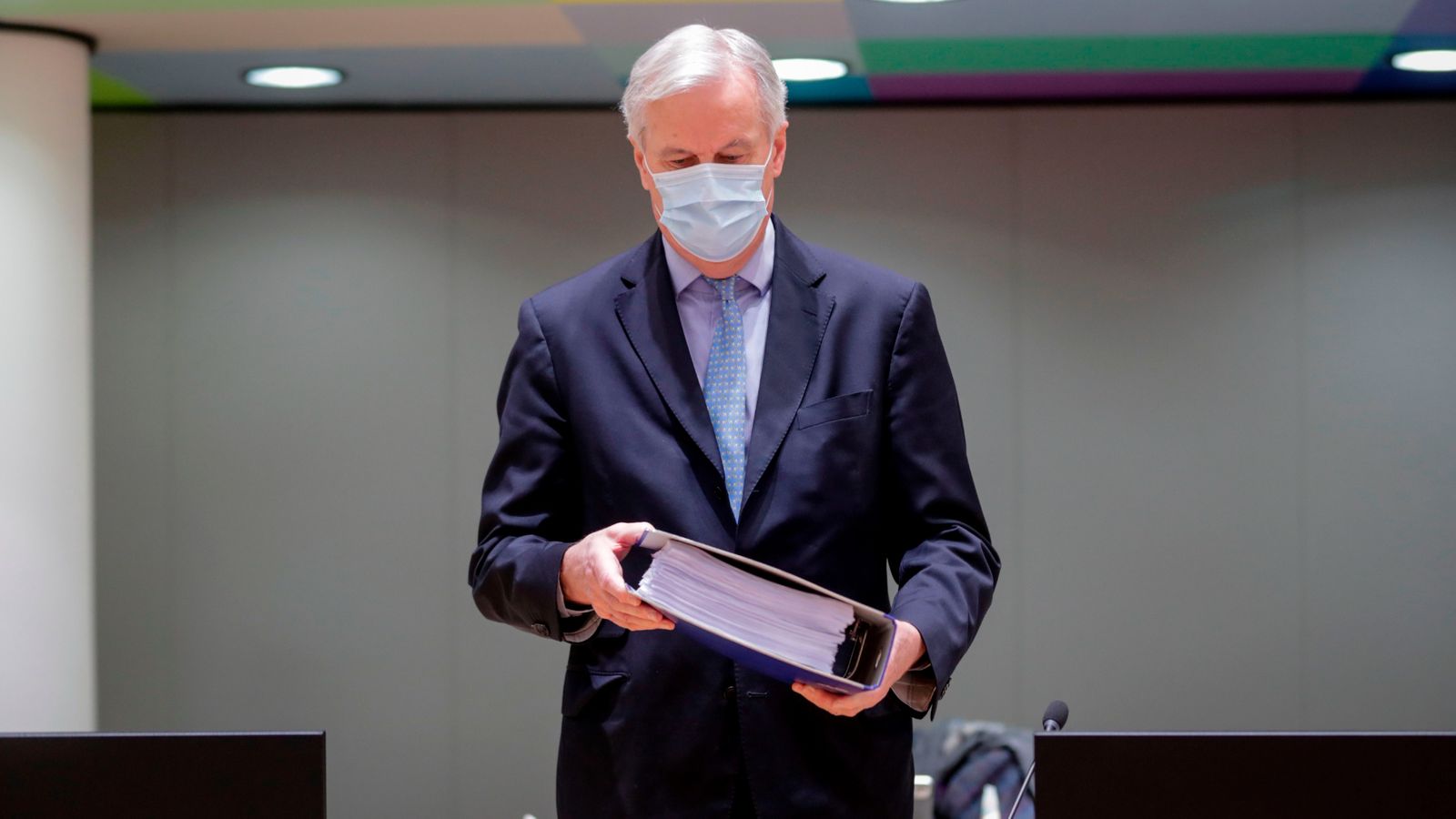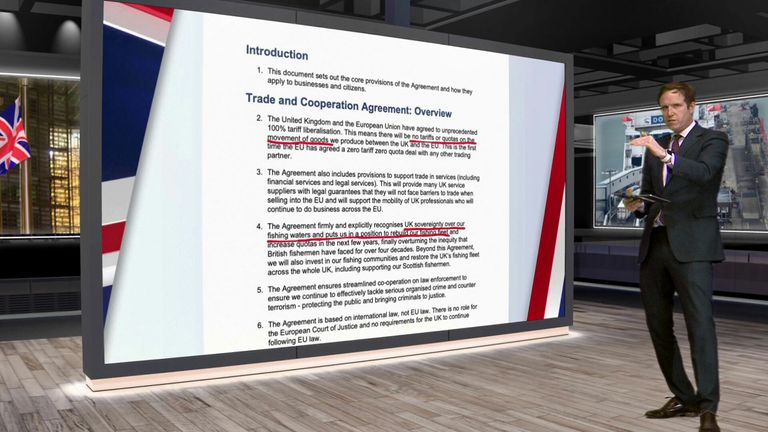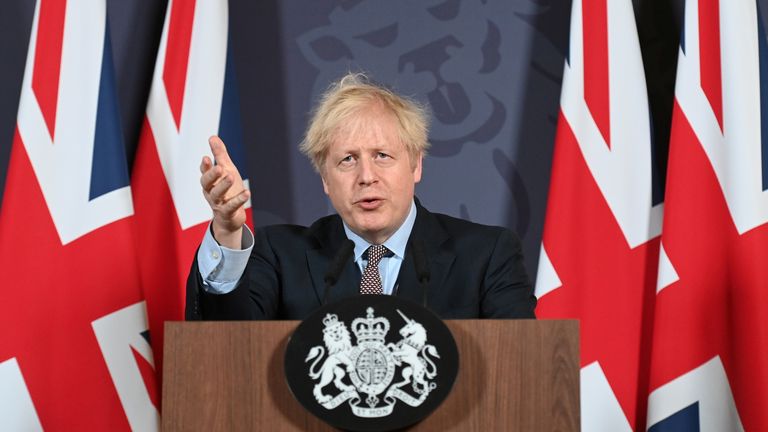The post-Brexit trade deal between the EU and UK has brought “a little stability” but there are still some elements of the bloc’s future relationship with Britain to determine, Brussels’ chief negotiator has said.
Michel Barnier, who led trade negotiations with the UK on behalf of the EU, told French radio on Tuesday his team had “delivered an orderly Brexit“.
But he added the agreement struck on Christmas Eve did not cover all aspects of the future EU-UK relationship, with foreign policy co-operation still to be defined.
Former prime minister Theresa May’s “political declaration” on the future EU-UK relationship in 2018 set out hopes of designing a framework for future foreign policy cooperation.
However, after replacing Mrs May in 10 Downing Street, Boris Johnson chose not to include foreign policy matters in negotiations with Brussels – to the repeated annoyance of Mr Barnier.
Having now completed the negotiations on a post-Brexit trade deal, Mr Barnier also offered a hint as to his future ambitions – ahead of the 2022 French presidential elections.
“I will use my energy to work for my country,” he told Franceinfo.
The 69-year-old, who was elected to the French parliament more than 42 years ago at the beginning of his long political career, added: “I am a patriot and a European.
“I never stopped being involved in the French political debate. I will see where I can be useful.
“I want to take part in the collective process of bringing about progress in my country.”
The Brexit trade deal, due to come into force on 1 January, was on Monday unanimously approved by EU ambassadors.
The agreement is due to be voted on by the House of Commons and House of Lords on Wednesday under the UK’s own ratification process.
Prior to that vote, former Conservative cabinet minister David Lidington – who served as Mrs May’s de facto deputy prior to her resignation – called on the UK to establish an ongoing “strategic partnership” with EU member states.
“Over the next 10 years, a UK outside the EU will need to renew and strengthen both its bilateral relationships with other European countries and its partnership with the EU collectively,” he wrote in an article for the ConservativeHome website.
“With national governments, this partly about finding a substitute for the regular contact between British ministers and officials and their counterparts that for nearly 50 years, has taken place at and in the margins of Council of Ministers meetings.”
The post-Brexit trade deal is expected to pass through the House of Commons, after Labour said they would vote in favour of the agreement.
The party’s shadow business minister, Lucy Powell, told Sky News the trade deal was “not as comprehensive a deal as we would like or the country was promised”.
But she said MPs now faced a “binary choice” between the trade agreement or the UK leaving the Brexit transition period with the “catastrophic consequences” of no deal being in place.
Subscribe to Sophy Ridge on Sunday on Apple podcasts, Google podcasts, Spotify, Spreaker
Ms Powell added she understood the vote would be a “difficult issue” for her fellow Labour MPs, amid signs a number might rebel and vote against the deal.
Former shadow cabinet ministers John McDonnell, Clive Lewis and Ben Bradshaw are among a list of Labour figures to have signed a statement urging the party not to support the trade agreement.
The DUP will vote against the deal as they continue to register their discontent with the provisions for the Irish border – known as the Northern Ireland Protocol – that Mr Johnson signed up to last year.
But the European Research Group of Conservative Brexiteers are expected to come out in support of the agreement on Tuesday, after their “star chamber” of legal experts reach a verdict on the terms of the deal.


